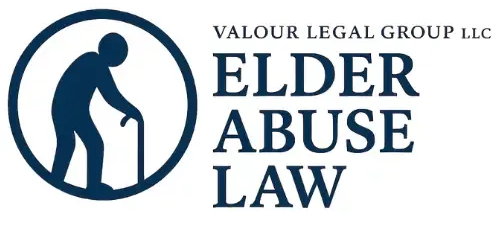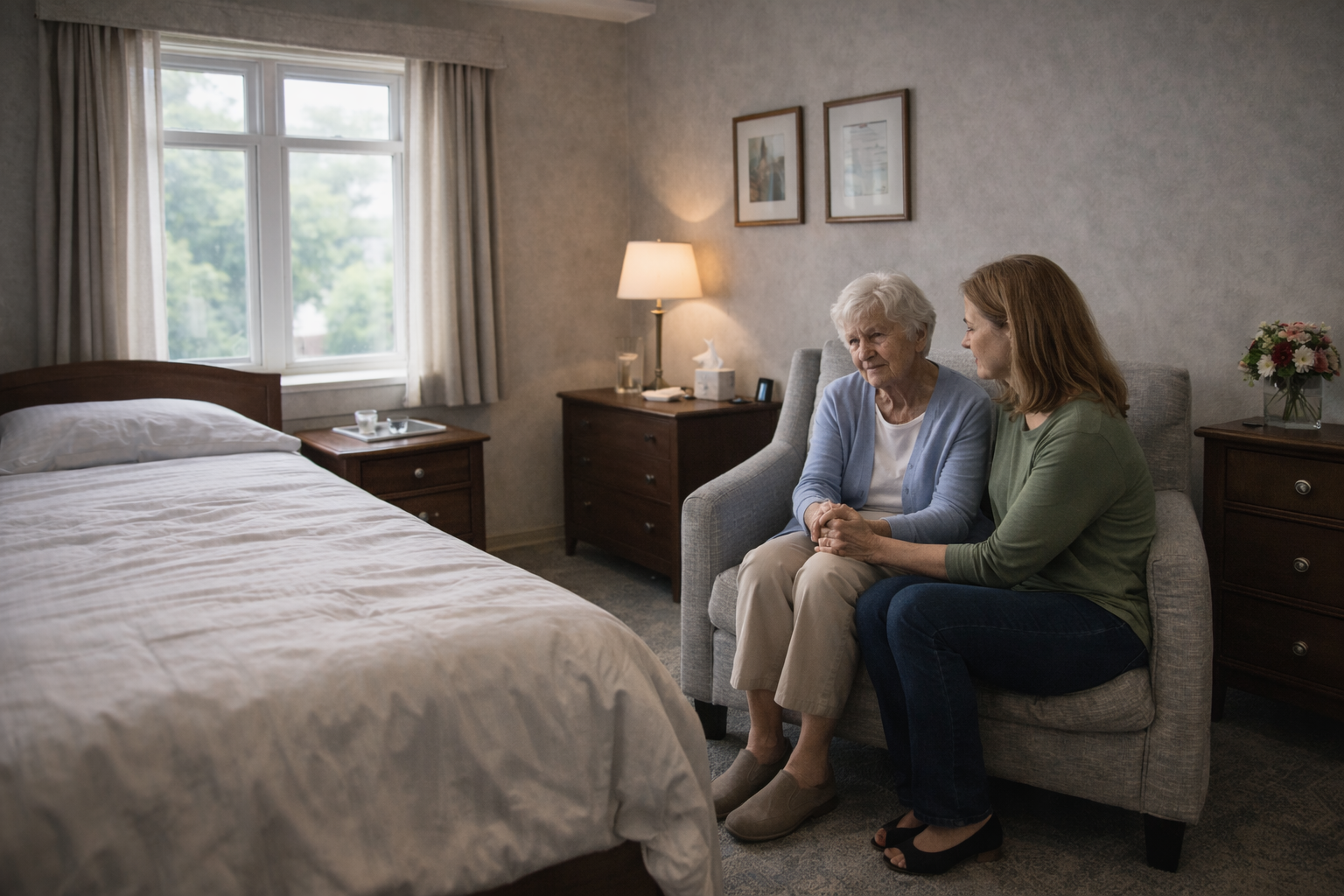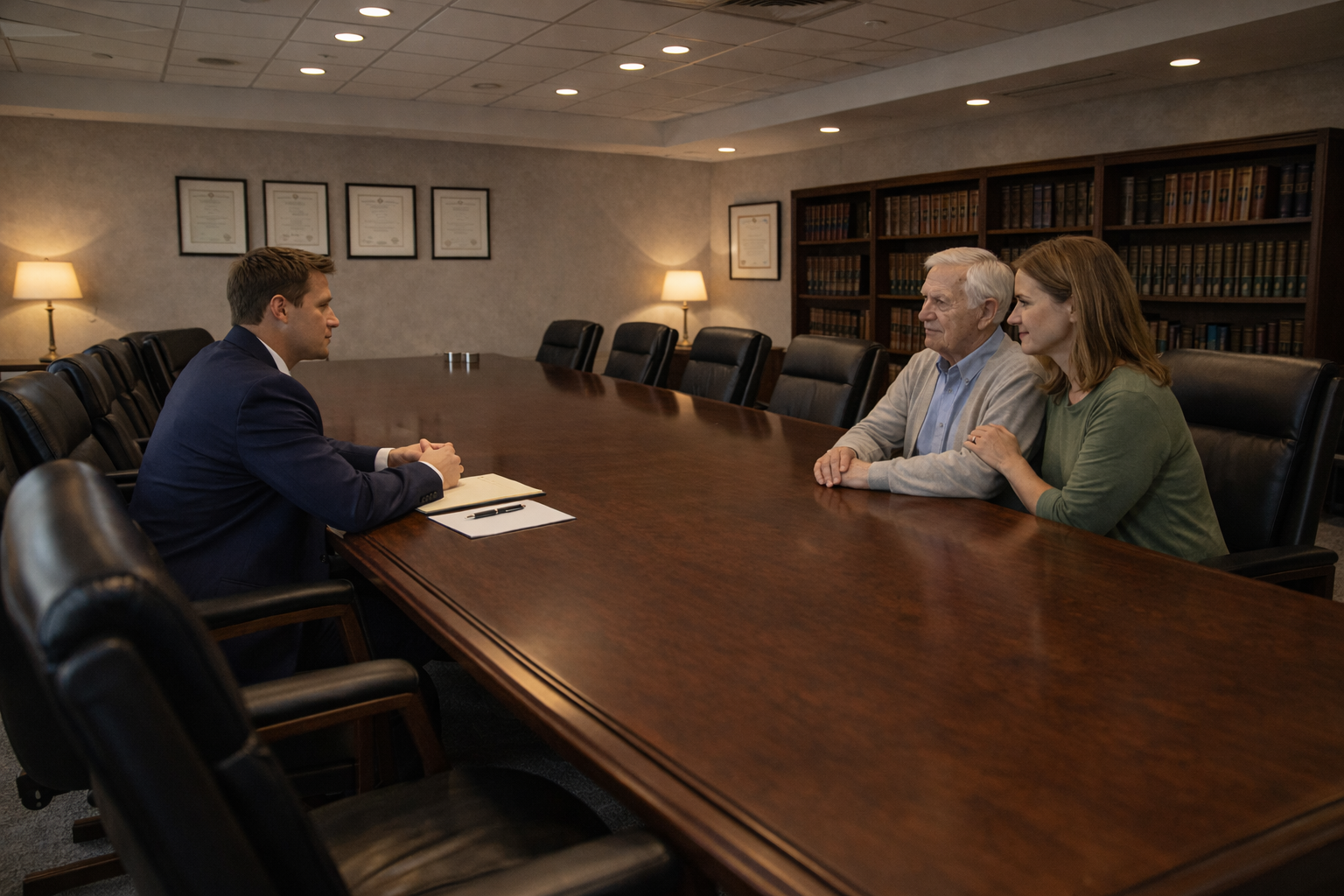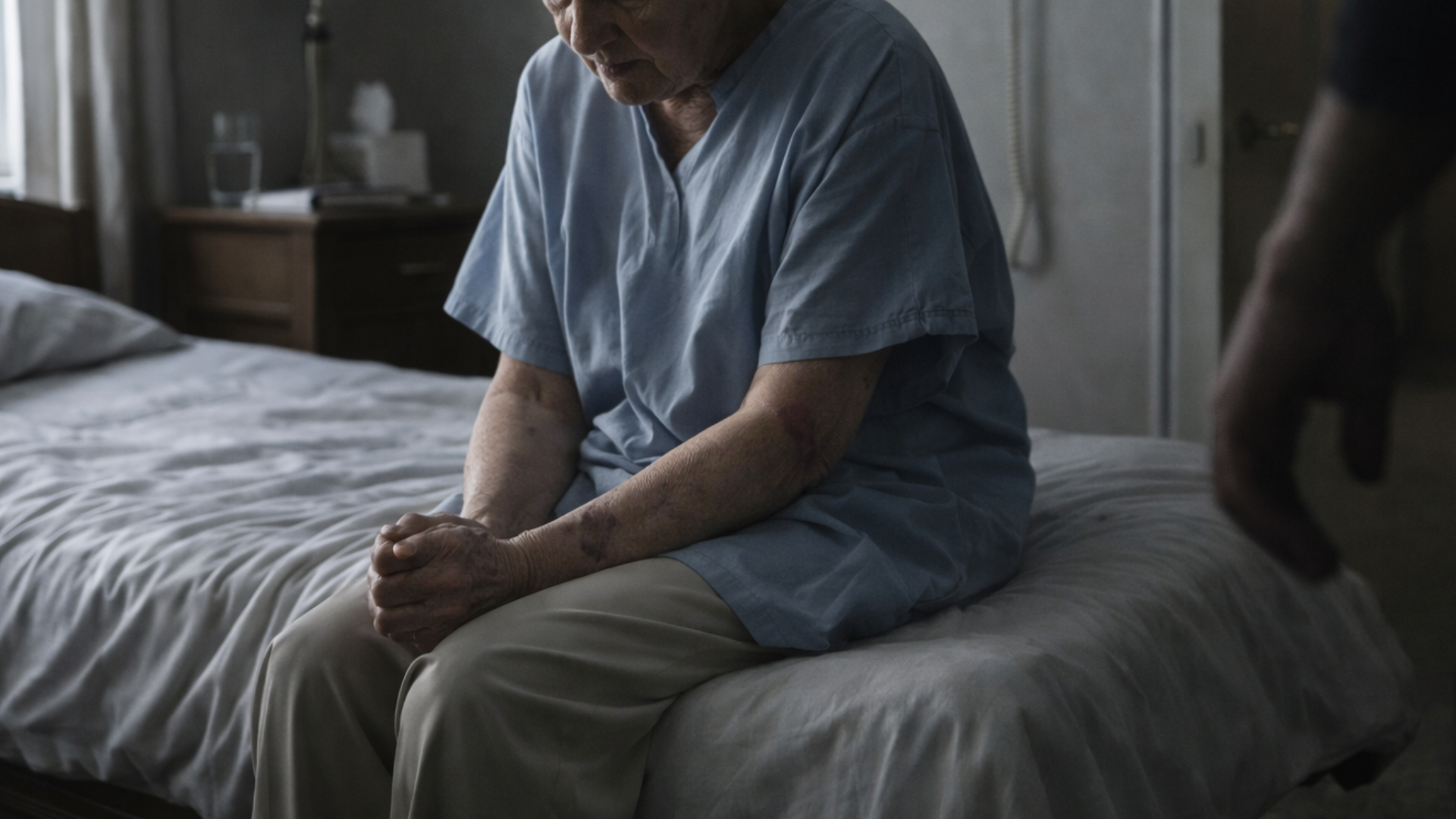Protecting Seniors: Proven Ways to Reduce Fall Risks in Nursing Homes
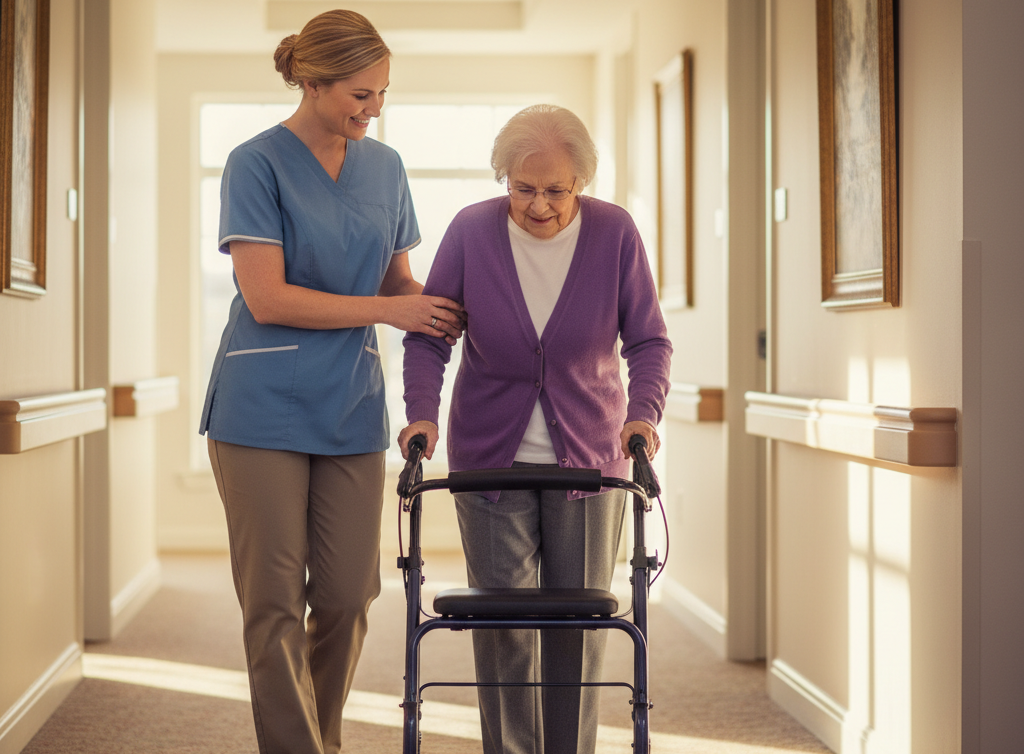
Falls represent one of the most serious threats to seniors in nursing homes today. For older adults, what might seem like a minor stumble can quickly escalate into life-changing injuries, broken hips, traumatic brain injuries, or permanent disabilities that rob them of their independence. When families entrust their loved ones to nursing home care, they expect these facilities to provide safe, protective environments. Yet falls continue to plague facilities across the country, leaving families devastated and wondering if their loved one's injury could have been prevented.
Understanding proven prevention strategies isn't just about keeping seniors safe, it's about holding care facilities accountable when they fail to meet their duty of care. If you're concerned about a loved one's safety or believe negligence contributed to a fall injury, consulting with a Chicago Nursing Home Falls Attorney can help you understand your options and ensure justice is served.
What Is the Best Way to Prevent Falls in Nursing Homes?
There's no magic bullet when it comes to fall prevention, effective protection requires a comprehensive, multi-layered approach tailored to each resident's unique needs. The foundation of any successful fall prevention program starts with thorough, personalized risk assessment.
Every resident brings their own set of challenges: chronic health conditions, multiple medications, vision impairments, or mobility limitations that can dramatically increase their fall risk. The best nursing homes recognize this reality and implement systematic approaches that include:
Regular, comprehensive fall risk assessments are conducted at admission and updated whenever a resident's health status changes, whether that's a new medication, a recent illness, or declining mobility.
Dynamic care plan adjustments that evolve with residents' changing needs rather than relying on outdated assessments that no longer reflect their current condition.
Ongoing staff training programs that teach caregivers to recognize subtle warning signs of increased fall risk, such as unsteadiness after medication changes, increased confusion, or new complaints of dizziness.
When facilities consistently evaluate and adapt their care strategies, they create genuinely safer environments. However, when they cut corners or fail to update assessments, residents pay the price. If you suspect a facility's negligence contributed to your loved one's fall, a Chicago Nursing Home Falls Attorney can investigate whether proper protocols were followed. For more insights, see Step-by-Step Guide: How to Take Action After Discovering Elder Abuse.
Evidence-Based Strategies That Actually Work
Research has identified several proven interventions that, when combined, can dramatically reduce fall rates among nursing home residents:
1. Environmental Safety Modifications
The physical environment plays a crucial role in fall prevention. Simple but essential modifications include:
- Installing sturdy grab bars in bathrooms, hallways, and beside beds
- Maintaining bright, even lighting throughout facilities, especially in transition areas
- Using non-slip flooring materials and immediately addressing any wet or cluttered areas
- Ensuring beds, wheelchairs, and toilet seats are adjusted to appropriate heights for each resident
- Keeping frequently used items within easy reach to prevent overreaching or unsafe stretching
2. Medication Management and Review
Many seniors take multiple medications that can significantly impact their balance and cognitive function. Particularly problematic are sedatives, certain antidepressants, and blood pressure medications that can cause dizziness or sudden drops in blood pressure.
Effective nursing homes conduct regular medication reviews with healthcare providers, looking specifically for:
- Dangerous drug combinations that increase fall risk
- Medications that may no longer be necessary
- Dosage adjustments that could reduce side effects without compromising treatment
3. Strength and Mobility Support Programs
Physical decline doesn't have to be inevitable. Well-designed exercise and mobility programs can help residents maintain strength, balance, and confidence:
- Physical therapy sessions tailored to individual capabilities and limitations
- Group exercise classes that encourage safe movement and social interaction
- Proper fitting and maintenance of mobility aids like walkers, canes, and wheelchairs
- Balance training exercises that can be performed safely even by residents with significant limitations
4. Adequate Staffing and Supervision
Perhaps the most critical factor in fall prevention is having sufficient, well-trained staff available when residents need assistance. Understaffing is a epidemic problem in many nursing homes, and it directly contributes to preventable falls.
Residents often fall when attempting to get up unassisted because no caregiver is available to help with transfers from bed to bathroom, or when call lights go unanswered for extended periods. When facilities cut corners on staffing, residents suffer the consequences.
How Families Can Protect Their Loved Ones
While nursing homes bear primary responsibility for resident safety, families aren't powerless. Active involvement and advocacy can make a real difference in preventing falls and ensuring quality care:
1. Stay Engaged and Observant
- Visit regularly at different times of day to get a realistic picture of staffing levels and care quality
- Ask specific questions about your loved one's fall risk assessment and prevention plan
- Request to see documentation of care plan updates and staff communications
- Watch for concerning changes in your loved one's mobility, confidence, or willingness to move around
2. Know the Warning Signs
Falls often don't happen in isolation. Warning signs that may indicate increased risk or inadequate care include:
- Unexplained bruises, cuts, or injuries
- Sudden fearfulness about walking or moving independently
- Reports from your loved one about feeling rushed during transfers or personal care
- Complaints about unanswered call lights or requests for assistance
- Changes in medication without adequate explanation or monitoring
3. Document Everything
If you have concerns about your loved one's safety or care quality, keep detailed records of:
- Dates and times of visits and observations
- Conversations with staff and administrators
- Any injuries or concerning incidents
- Changes in your loved one's condition or behavior
This documentation can be invaluable if you need to file a complaint with regulatory agencies or consult with a Chicago Nursing Home Falls Attorney about potential negligence.
Understanding Your Legal Options
Despite the availability of proven fall prevention strategies, many nursing homes fail to implement them effectively due to cost-cutting, inadequate training, or simple negligence. When these failures result in serious injuries, families have legal recourse.
A Chicago Nursing Home Falls Attorney can help you determine whether a fall was truly accidental or the result of preventable negligence. They can investigate:
- Whether the facility conducted proper risk assessments
- If staff followed established safety protocols
- Whether adequate supervision was provided
- If environmental hazards were addressed promptly
- Whether medication management was appropriate
Important legal considerations:
- Illinois law provides specific protections for nursing home residents
- There are time limits for filing legal claims, so prompt action is essential
- Facilities must maintain detailed records that can provide evidence of negligence
- Successful legal action can provide compensation for medical bills, pain and suffering, and other damages
Working with an experienced Chicago Nursing Home Falls Attorney ensures that your family's rights are protected and that negligent facilities are held accountable for their failures.
The Multi-Factor Approach That Works
Research consistently shows that the most effective fall prevention programs use a comprehensive, multi-factor approach rather than relying on any single intervention. The most successful facilities combine:
- Systematic risk assessment protocols that go beyond basic checklists to truly understand each resident's individual risk factors and needs.
- Evidence-based exercise and balance programs that help residents maintain functional capacity while building confidence in their mobility.
- Environmental safety measures that eliminate hazards and provide supportive features throughout the facility.
- Comprehensive staff education that ensures every team member understands their role in fall prevention and can recognize changing risk factors.
- Robust medication management that minimizes dangerous side effects and drug interactions that can contribute to falls.
- Adequate staffing levels that ensure residents receive timely assistance with mobility and personal care needs.
When nursing homes consistently and thoroughly implement these strategies, fall rates can be reduced by 30% or more. However, when facilities cut corners or fail to maintain these standards, residents pay the price with preventable injuries.
Taking Action When Prevention Fails
Falls are not an inevitable part of aging, they are often the result of preventable factors that nursing homes have a duty to address. When facilities fail in this duty, they must be held accountable both to obtain justice for injured residents and to prevent similar injuries to others.
If your loved one has been injured in a nursing home fall, don't assume it was simply an unavoidable accident. Chicago Nursing Home Abuse Attorney can review the circumstances, investigate whether proper safety protocols were followed, and help your family understand your legal options.
Signs that may indicate negligence:
- Falls that occur during transfers without adequate staff assistance
- Injuries in areas known to be hazardous that weren't properly addressed
- Falls by residents with known high fall risk who weren't receiving appropriate supervision
- Repeated falls by the same resident without care plan modifications
- Falls that occur when call lights go unanswered for extended periods
Moving Forward: Ensuring Dignity and Safety
Every senior deserves to live their final years with dignity, safety, and respect. While aging may bring challenges, serious fall injuries are often preventable when proper care standards are maintained.
By understanding effective fall prevention strategies, staying actively involved in your loved one's care, and knowing when to seek legal help from a qualified Chicago Nursing Home Falls Attorney, families can help ensure their loved ones receive the protection and care they deserve.
Remember: nursing homes have both a moral and legal duty to protect their residents. When they fail in this duty, holding them accountable not only helps your family seek justice but also helps protect other vulnerable seniors from similar harm.
The right combination of proven prevention strategies, family advocacy, and legal accountability when necessary can make nursing homes safer for everyone's loved ones. Don't let negligence go unchallenged, your loved one's safety and dignity depend on it. Talk to a specialist today.
